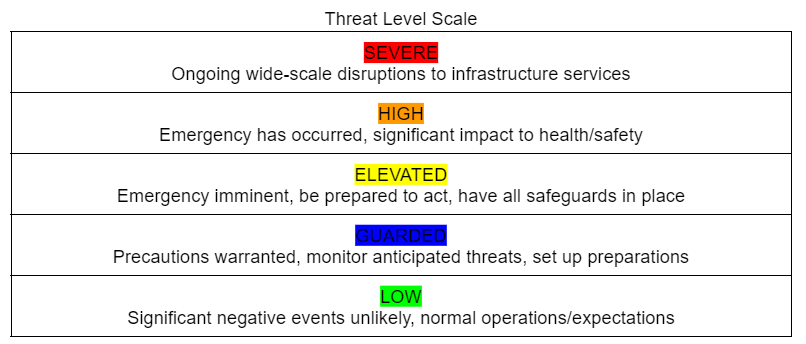|
This is the article about “stuff” you can buy.
What we are facing is not going to be short term, and it's not going to affect one small area. The duration is forever. It will affect literally everything, in progressively compounding ways. First we’ll go through ever-increasing, and unending, scarcity and downscaling. People everywhere are going to be disabused of their previous expectations of abundance within a few months. The decline of globalized industrial civilization will lead to a collapse of the global economy. We are at the cusp of rapid and severely disruptive changes. The infrastructure of our civilization will break down, giving rise to a predicament that will swamp the government's ability to manage. It will lead to widespread disorientation, anxiety, and social breakdown. Eventually within your area grocery stores won't exist, hospitals won't be open, firefighters and police won't come to your aid, etc. And this decline will happen far faster than people expect.
1 Comment
Adapting to a new world will test everyone’s limits. Managing the transition well means exposing yourself to the things you are likely to experience, as much as you can. The sooner you and your family accept that things have changed and will never return to the way they were before, the better off you will be. This mental acceptance must lead to physical preparatory action so that you can get yourself ready for the inevitable hard times to come.
Part II: Expectations and Psychological FrameworkPart I laid the case for the US, and the world, progressing into a HIGH threat level, with the implication that a SEVERE threat level would eventually emerge from it and/or override it completely due to a “black swan event”. Part II will focus on what we can generally expect at each stage, and the psychological framework that often gets overlooked. Summer 2022. Threat level increase from LOW to GUARDED. “To put it simply, we are facing a crisis on top of a crisis.”
- Kristalina Georgieva, IMF Managing Director, Washington DC, 2022 Let’s just start this off strongly by saying that if you google “bug out bag”, everything the search engine returns for you will be bullshit. That’s right, I said it. It’s a bunch of armchair fantasies coupled with capitalist marketing. I’ll even go so far as to say that if the article you’re reading about it contains a bunch of product links it’s almost certainly garbage. To be fair, no one seems to come at the subject from the standpoint of the staggered collapse of industrial civilization. In this rundown, I will.
A Get Out Now Emergency is a reaction that occurs when you have no other options. If you have enough stability to make decisions, then this isn’t tailored for that. This kind of bag is distinct from others talked about such as a survivalist bag or a tactical bag. The armchair fantasies are plagued with unrealistic expectations - both in what to expect as well as what to carry. The more realistic and useful bag will include the things you actually can use and none of the things you don’t need - and the latter is a much lengthier list. Your home, especially if you’ve made any preparations whatsoever, provides far more comfort and security - and contains a whole lot more useful stuff than what you can carry on your back. "When Americans awake from the corona coma like millions of Rip Van Winkles... this will be a different country." |
The future is going to be far different than the past. The next decade is going to look vastly different than the last decade. This blog is about the transition.
If you like what you see, contribute to making this blog a success here:
Recent Posts: Physical Preps and Tools Prepping Priorities - Physical & Psychological 2022 US Threat Assessment Part II 2022 US Threat Assessment Part I GONE Bag: Get Out Now Emergency Tactical Gear Considerations Interview with Derrick Jensen 2020: A Marker For Collapse Firearms And Our Future Thermodynamic Failure: Phase 2 Firearms and Defense Syria 1971 Explaining Peak Oil Graduate-Level Preparedness The Significance of Renewables Preparing What Will The Future Look Like? What Do The Experts Say? Hope is Complex and Fragile Historical Perspective Personal Change Does Not Equal Social Change Why Genesis 1:28 Doesn't Apply It's Not About Running Out of Oil Introduction |

 RSS Feed
RSS Feed
